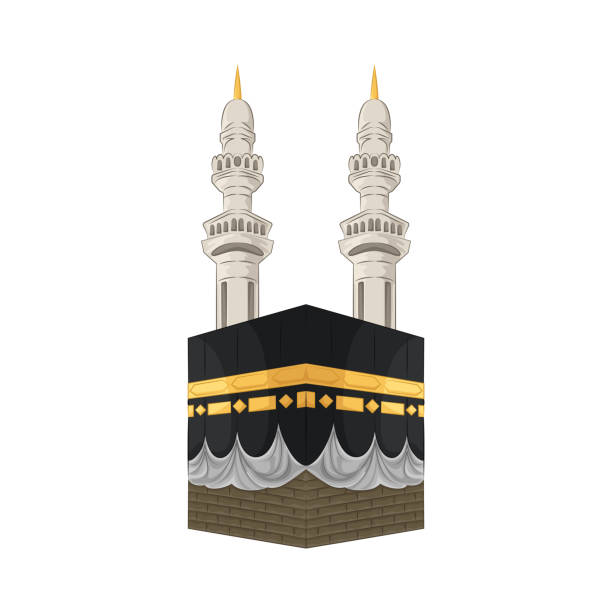Supplications During Prayer
Supplication of Witr:
عن الحسن بن علي -رضي الله عنهما- قال: عَلَّمَنِي رسول الله -صلى الله عليه وسلم- كلمات أقولهن في الوتر، -قال ابْنُ جَوَّاسٍ: في قنوت الوتر:- «اللهم اهدني فيمن هديت، وَعَافِنِي فِيمَنْ عَافَيْتَ، وَتَوَلَّنِي فِيمَنْ تَوَلَّيْتَ، وبارك لي فِيمَا أَعْطَيْتَ، وَقِنِي شَرَّ مَا قَضَيْتَ، إِنَّكَ تَقْضِي وَلَا يُقْضَى عَلَيْكَ، وإنه لَا يَذِلُّ مَنْ وَالَيْتَ، وَلَا يَعِزُّ مَنْ عَادَيْتَ، تَبَارَكْتَ رَبَّنَا وَتَعَالَيْتَ».. وفي رواية: قال في آخره: وصلى الله على النبي محمد.
It is narrated from Al-Hasan ibn Ali (may Allah Almighty be pleased with them both) that he said: The Messenger of Allah Almighty (may Allah Almighty bless him and give him peace) taught me some words to say in the Witr prayer. Ibn Jawwas said: meaning, in the Qunoot of Witr:
اللَّهُمَّ اهْدِنِي فِيمَنْ هَدَيْتَ، وَعَافِنِي فِيمَنْ عَافَيْتَ، وَتَوَلَّنِي فِيمَنْ تَوَلَّيْتَ، وَبَارِكْ لِي فِيمَا أَعْطَيْتَ، وَقِنِي شَرَّ مَا قَضَيْتَ، إِنَّكَ تَقْضِي، وَلَا يُقْضَى عَلَيْكَ وَإِنَّهُ لَا يَذِلُّ مَنْ وَالَيْتَ، وَلَا يَعِزُّ مَنْ عَادَيْتَ، تَبَارَكْتَ رَبَّنَا وَتَعَالَيْتَ”.
(O Allah Almighty, guide me among those whom You have guided; and grant me well-being among those whom You have granted well-being; and take me into Your care among those whom You have taken into Your care; and bless me in what You have given; and protect me from the evil of what You have decreed; for You decree and none can decree over You. Surely, he whom You befriend is not disgraced, and he whom You oppose is not honored. Blessed are You, our Lord, and Exalted.)
In another narration, at the end of this supplication he said:
وَصَلَّى اللَّهُ عَلَى النَّبِيِّ مُحَمَّدٍ
(And may Allah Almighty send blessings upon the Prophet Muhammad).
Narrated by Abu Dawood, At-Tirmidhi, An-Nasa’i, Ibn Majah, Ahmad, and Ad-Darimi.
Remembrance after the Witr Supplication:
أَخْبَرَنَا عَلِيُّ بْنُ مَيْمُونٍ قَالَ حَدَّثَنَا مَخْلَدُ بْنُ يَزِيدَ عَنْ سُفْيَانَ عَنْ زُبَيْدٍ عَنْ سَعِيدِ بْنِ عَبْدِ الرَّحْمَنِ بْنِ أَبْزَى عَنْ أَبِيهِ عَنْ أُبَيِّ بْنِ كَعْبٍ أَنَّ رَسُولَ اللَّهِ صَلَّى اللَّهُ عَلَيْهِ وَسَلَّمَ كَانَ يُوتِرُ بِثَلَاثِ رَكَعَاتٍ كَانَ يَقْرَأُ فِي الْأُولَى بِسَبِّحْ اسْمَ رَبِّكَ الْأَعْلَى وَفِي الثَّانِيَةِ بِقُلْ يَا أَيُّهَا الْكَافِرُونَ وَفِي الثَّالِثَةِ بِقُلْ هُوَ اللَّهُ أَحَدٌ وَيَقْنُتُ قَبْلَ الرُّكُوعِ فَإِذَا فَرَغَ قَالَ عِنْدَ فَرَاغِهِ سُبْحَانَ الْمَلِكِ الْقُدُّوسِ ثَلَاثَ مَرَّاتٍ يُطِيلُ فِي آخِرِهِنَّ سنن
النسائی ۱۶۹۹
النسائی ۱۶۹۹
It is narrated from Ubayy ibn Ka‘b (may Allah Almighty be pleased with him) that the Messenger of Allah Almighty (may Allah Almighty bless him and give him peace) used to perform Witr with three rak‘ahs. In the first rak‘ah, he recited
سَبِّحِ اسْمَ رَبِّكَ الْأَعْلَى
in the second
قُلْ يَا أَيُّهَا الْكَافِرُونَ
and in the third
قُلْ هُوَ اللَّهُ أَحَدٌ
He would make Qunoot before bowing, and when he finished (the prayer), he would say upon finishing,
سُبْحَانَ الْمَلِكِ الْقُدُّوسِ
three times, prolonging the third one.
Sunan An-Nasa’i 1699.

